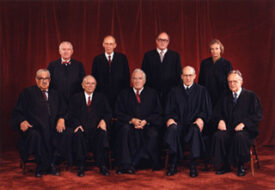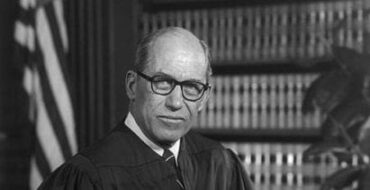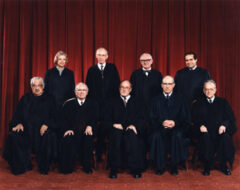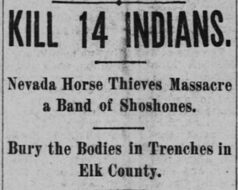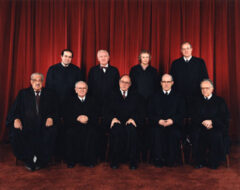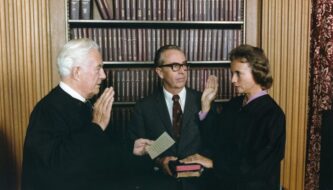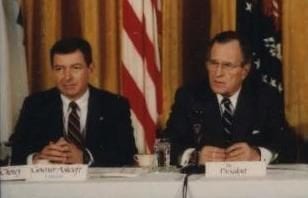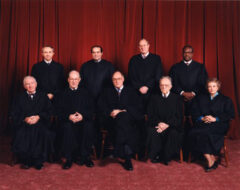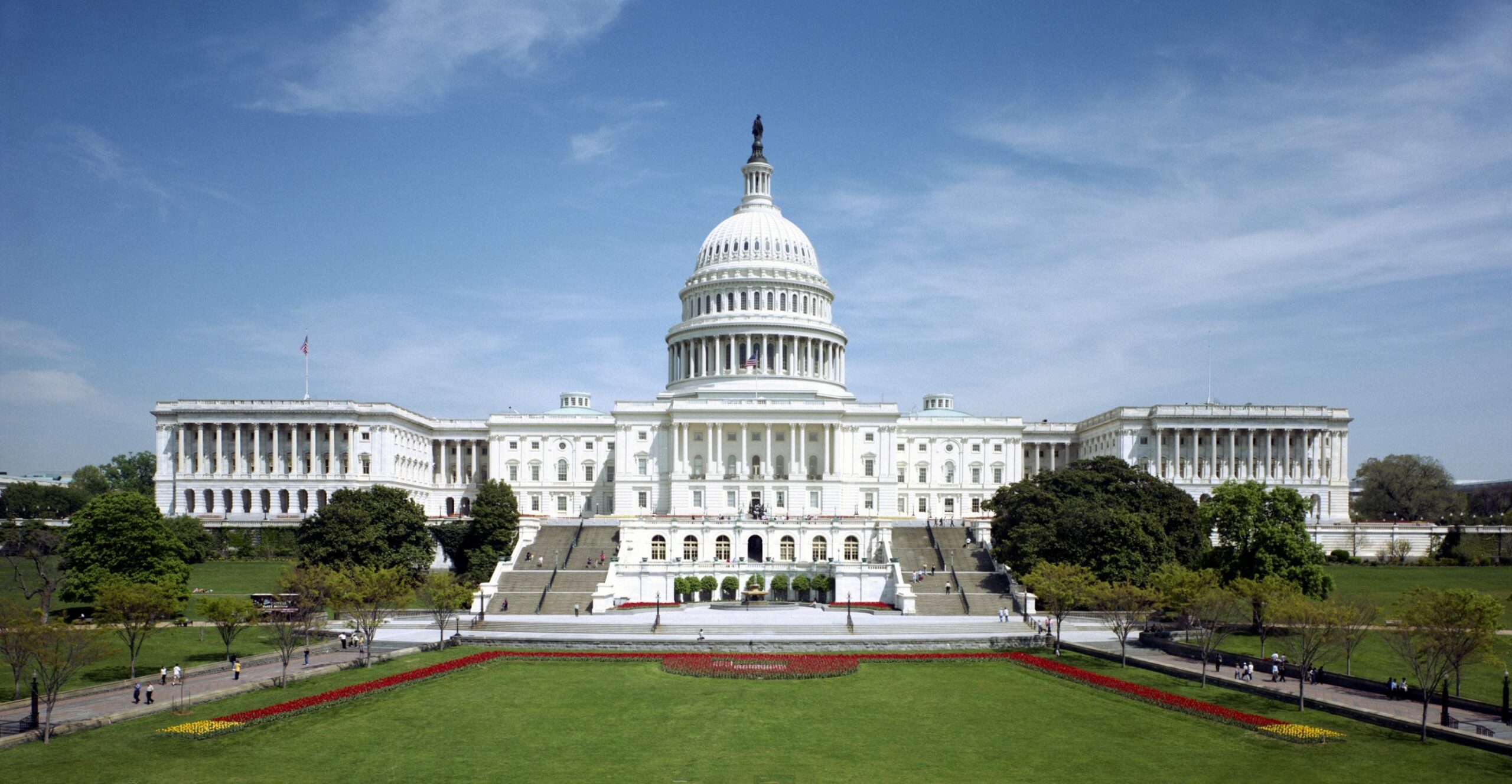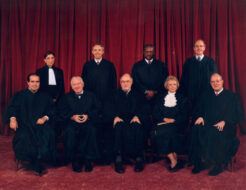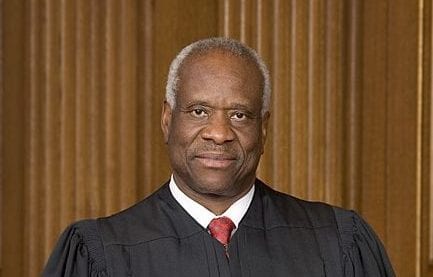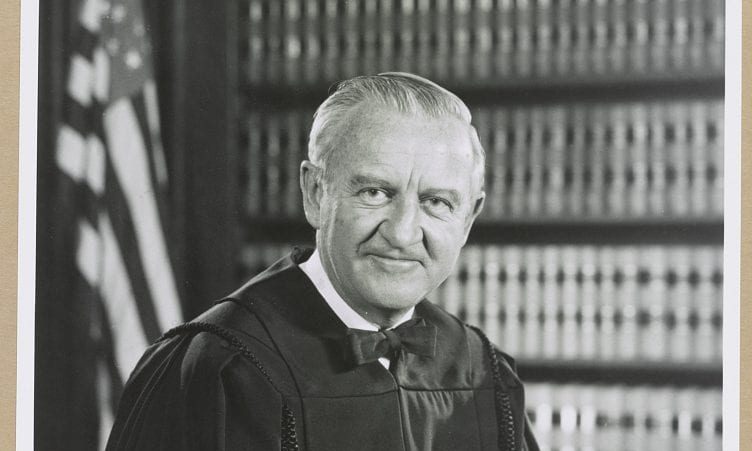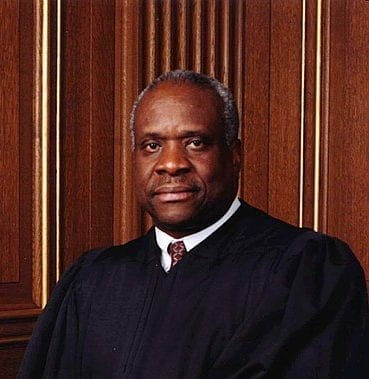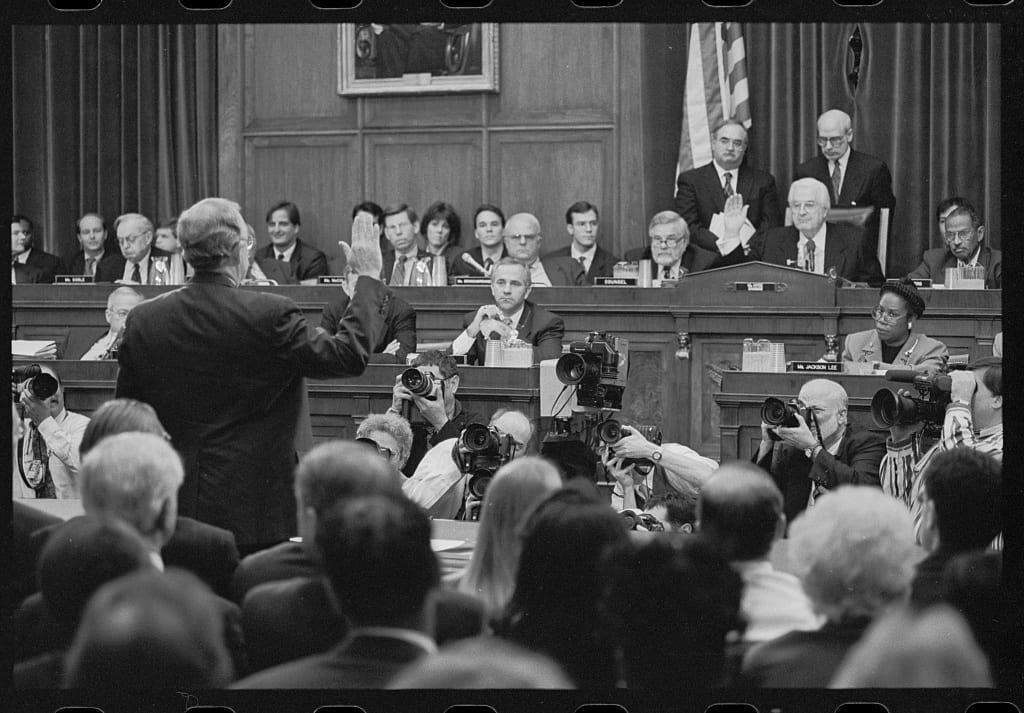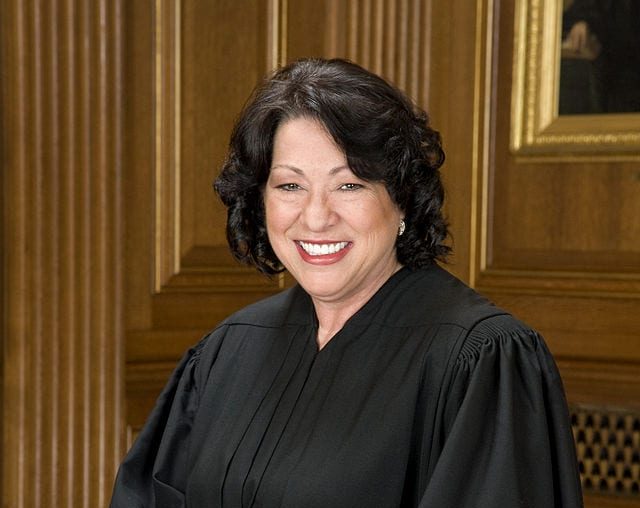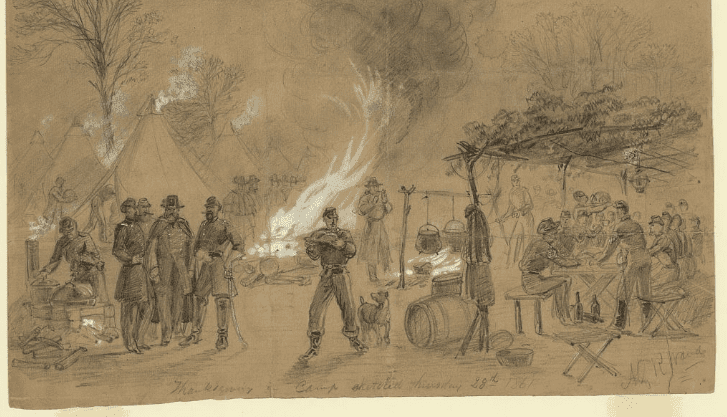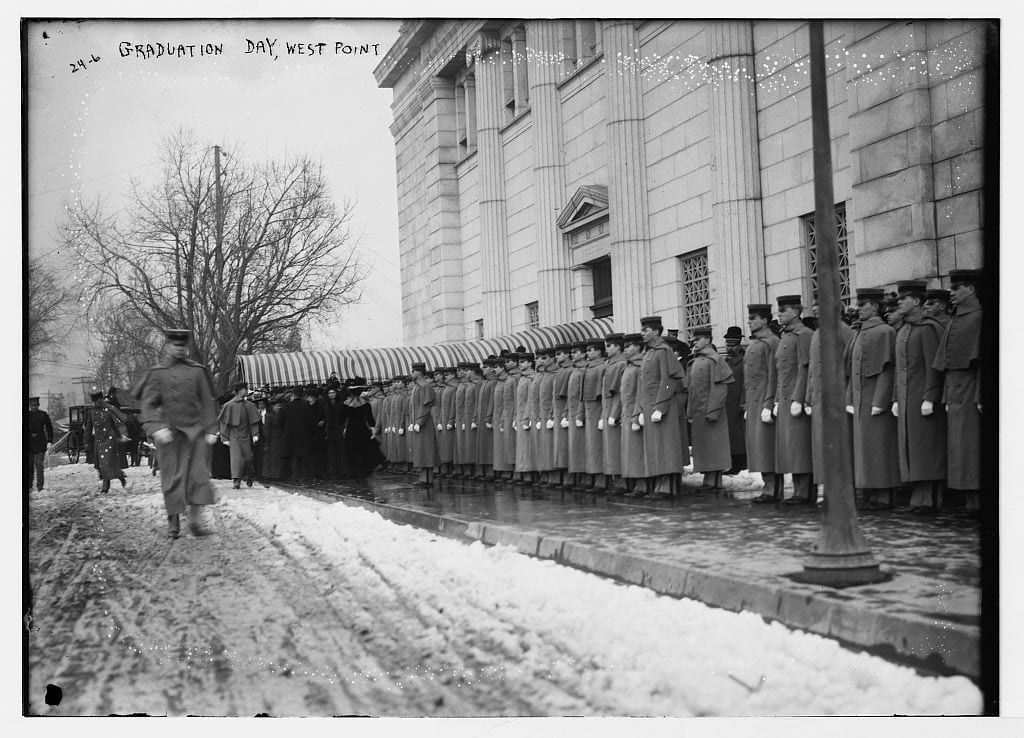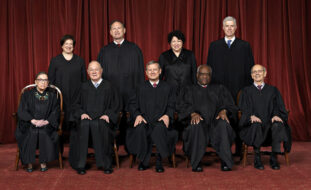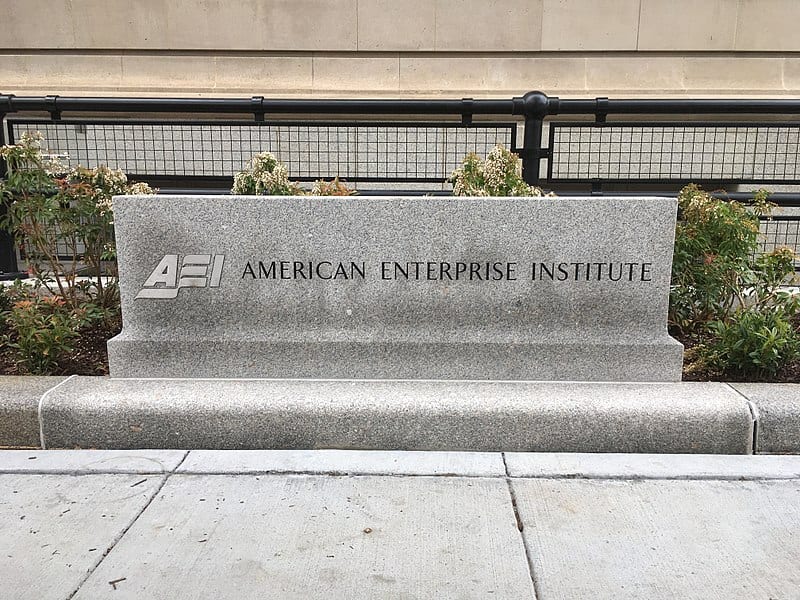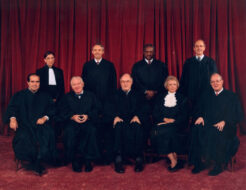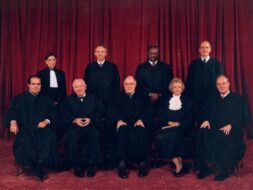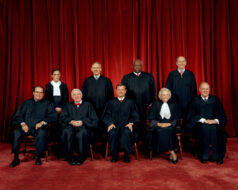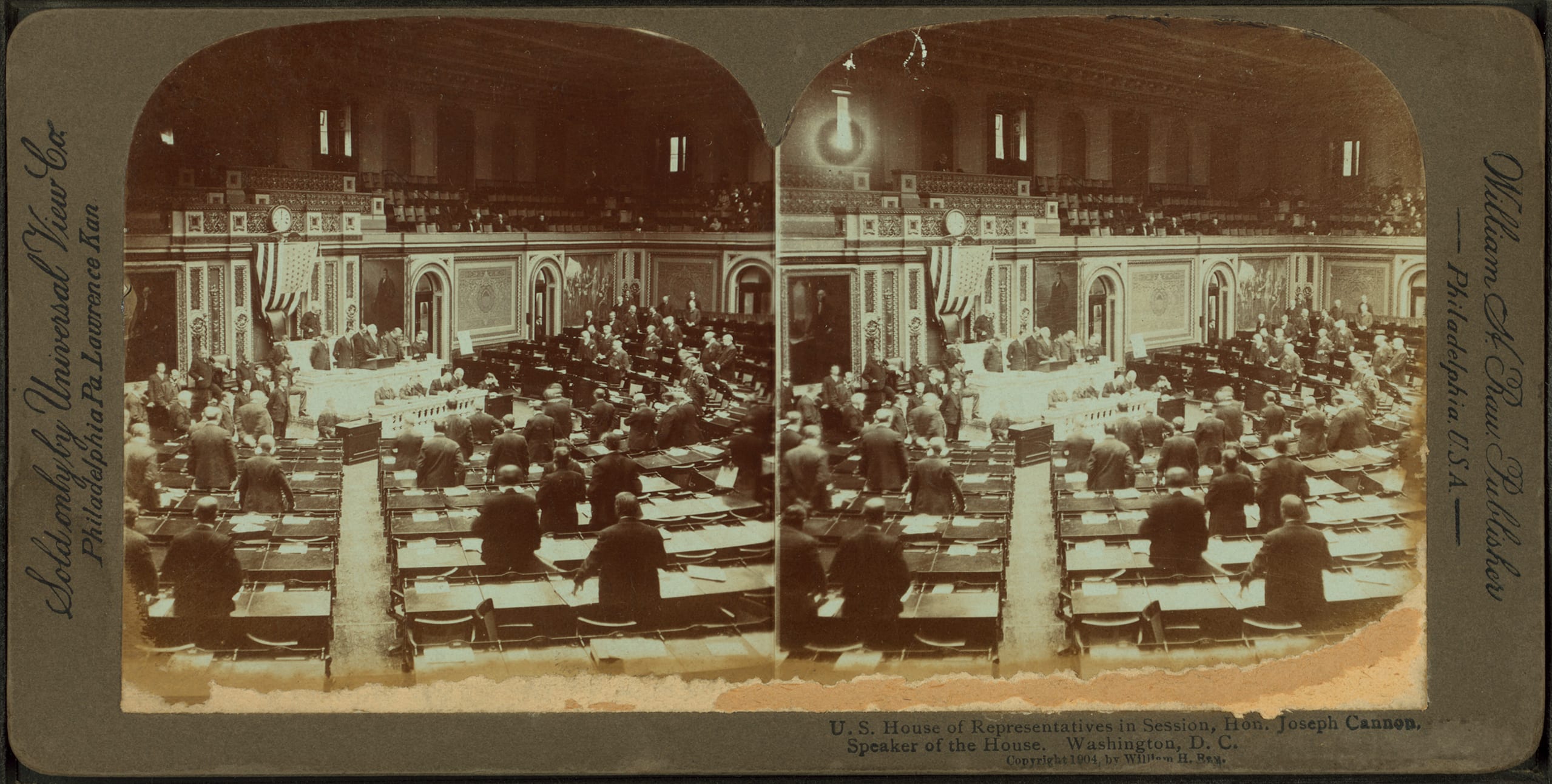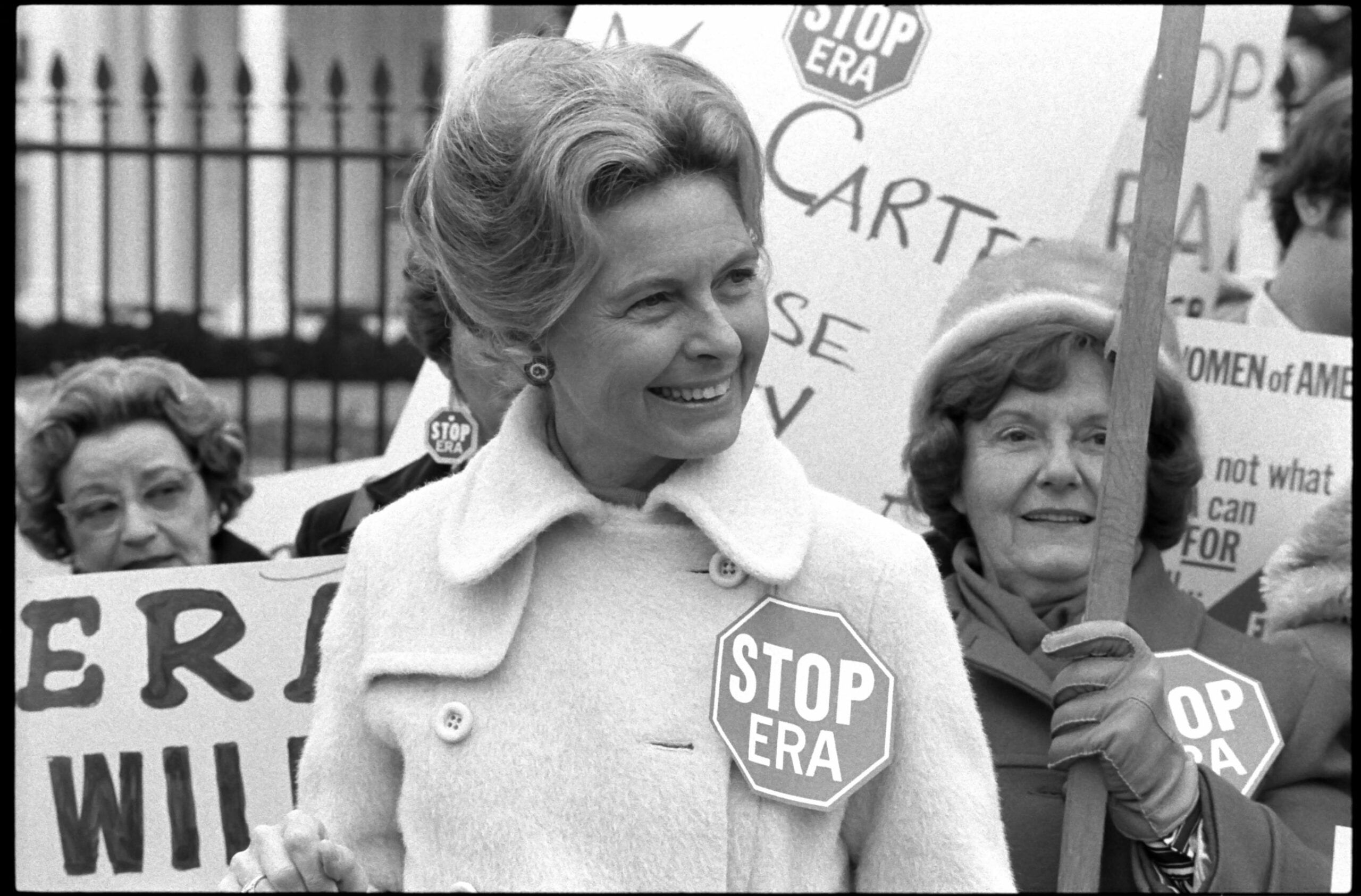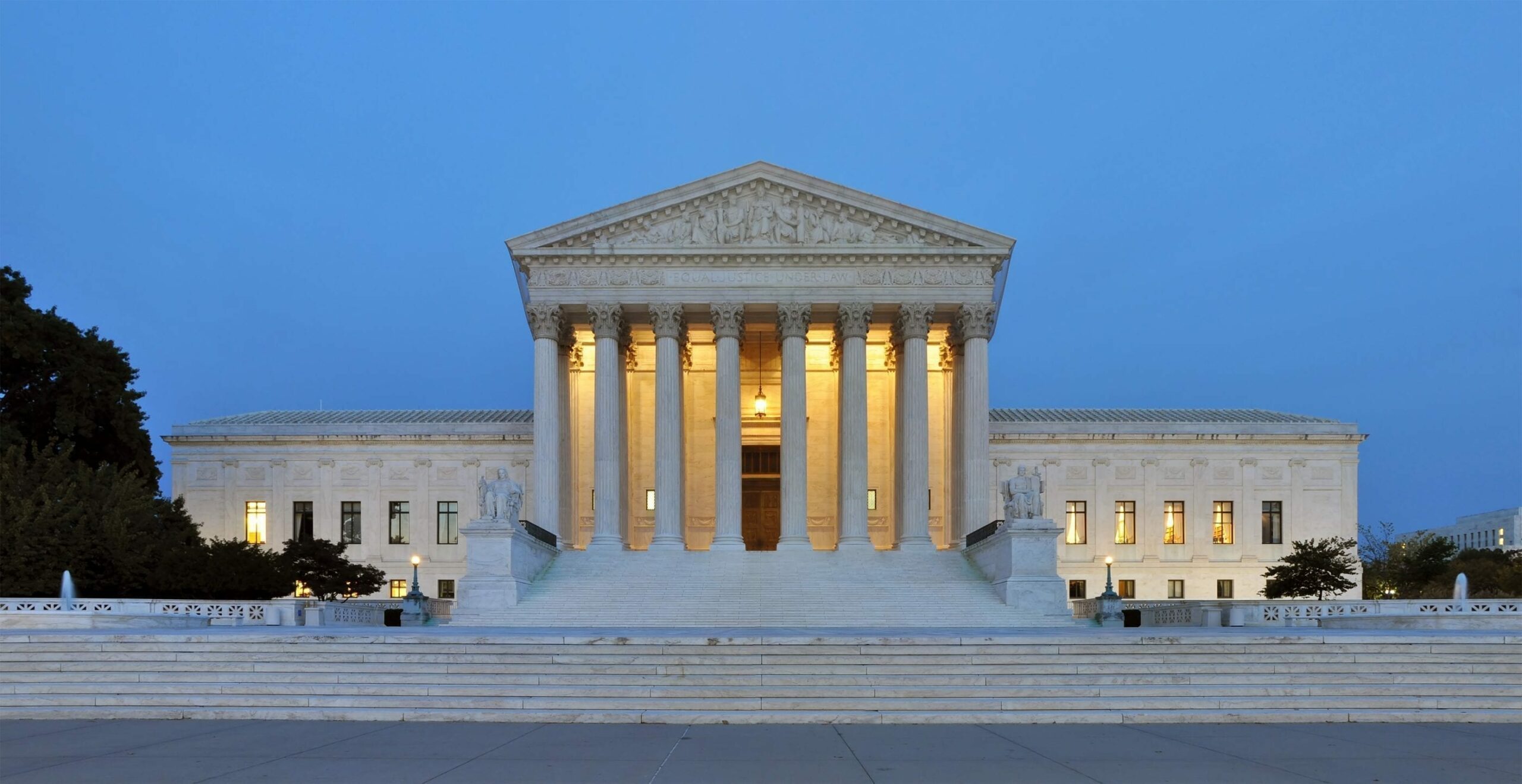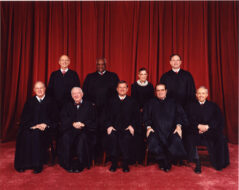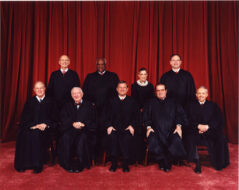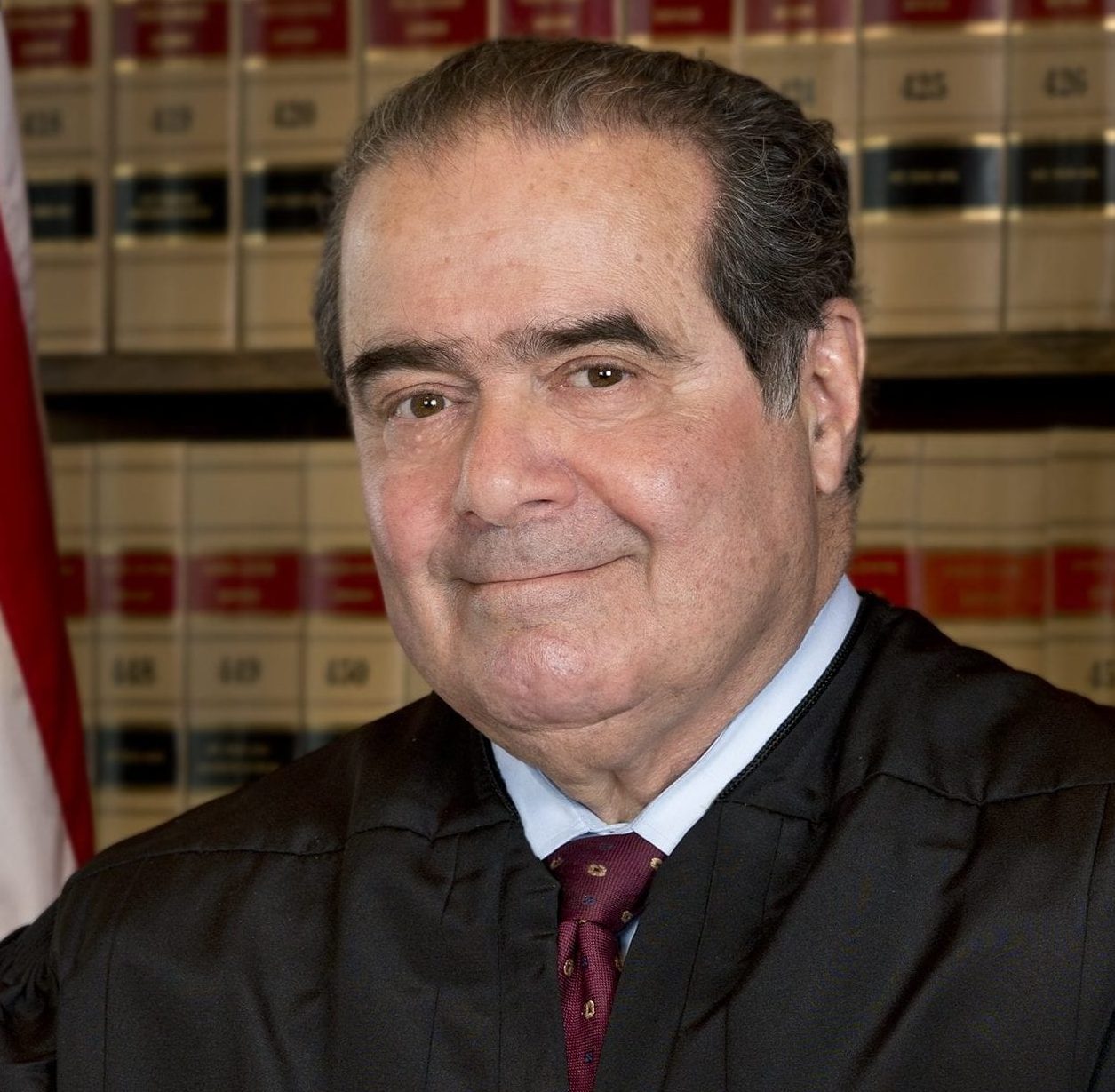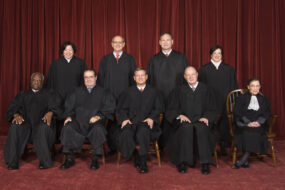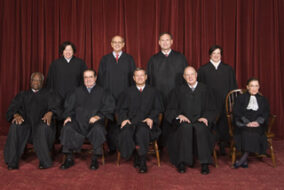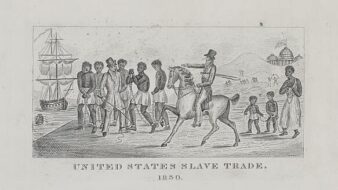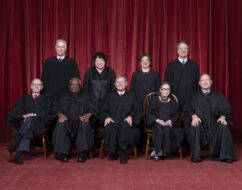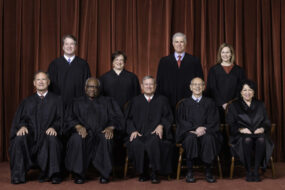
No study questions
No related resources
An Act to amend the Civil Rights Act of 1964 to strengthen and improve Federal civil rights laws, to provide for damages in cases of intentional employment discrimination, to clarify provisions regarding disparate impact actions, and for other purposes.
Be it enacted by the Senate and House or Representatives of the United States of America in Congress assembled,
Section 1. Short Title
This Act may be cited as the “Civil Rights Act of 1991.”
Section 2. Findings
The Congress finds that—
(1) additional remedies under Federal law are needed to deter unlawful harassment and intentional discrimination in the workplace;
(2) the decision of the Supreme Court in Wards Cove Packing Co. v. Atonio, 490 U.S. 642 (1989) has weakened the scope and effectiveness of Federal civil rights protections; and
(3) legislation is necessary to provide additional protections against unlawful discrimination in employment.
Section 3. Purposes
The purposes of this Act are—
(1) to provide appropriate remedies for intentional discrimination and unlawful harassment in the workplace;
(2) to codify the concepts of “business necessity” and “job related” enunciated by the Supreme Court in Griggs v. Duke Power Co., 401 U.S. 424 (1971), and other Supreme Court decisions prior to Wards Cove Packing Co. v. Atonio, 490 U.S. 642 (1989);
(3) to confirm statutory authority and provide statutory guidelines for the adjudication of disparate impact suits under Title VII of the Civil Rights Act of 1964 (42 U.S.C. 2000e et seq.); and
(4) to respond to recent decisions of the Supreme Court by expanding the scope of relevant civil rights statutes in order to provide adequate protection to victims of discrimination.
TITLE I—FEDERAL CIVIL RIGHTS REMEDIES
Section 101. PROHIBITION AGAINST ALL RACIAL DISCRIMINATION IN THE MAKING AND ENFORCEMENT OF CONTRACTS
Section 1977 of the Revised Statutes (42 U.S.C. 1981) is amended—
(1) by inserting “(a)” before “all persons within”; and
(2) by adding at the end the following new subsections:
“(b) For purposes of this section, the term ’make and enforce contracts’ includes the making, performance, modification, and termination of contracts, and the enjoyment of all benefits, privileges, terms, and conditions of the contractual relationship.
“(c) The rights protected by this section are protected against impairment by nongovernmental discrimination and impairment under color of State law.”
Section 102. DAMAGES IN CASES OF INTENTIONAL DISCRIMINATION
The revised Statutes are amended by inserting after section 1977 (42 U.S.C. 1981) the following new section:
“SEC. 1977A. DAMAGES IN CASES OF INTENTIONAL DISCRIMINATION IN EMPLOYMENT.
“(a) Right of Recovery.—
“(1) Civil Rights.—In an action brought by a complaining party under section 706 or 717 of the Civil Rights Act of 1964 (42 U.S.C. 200e-5) against a respondent who engaged in unlawful intentional discrimination (not an Employment practice that is unlawful because of its disparate impact prohibited under section 703, 704, or 717 of the Act (42 U.S.C. 200e-2 or 200e-3), and provided that the complaining party cannot recover under section 1977 of the Revised Statutes (42 U.SC. 1981), the complaining part may recover compensatory and punitive damages as allowed in subsection (b), in additions to any relief authorized by section 406(g) of the Civil Rights Act of 1964 from the respondent.
“(2) Disability.—In an action brought by a complaining party under the powers, remedies, and procedures set forth in section 706 or 717 of the Civil Rights Act of 1964 (as provided in section 107(a) of the Americans with Disabilities Act of 1990 (42 U.S.C. 12117 (a)), and section 505(a)(1) of the Rehabilitation Act of 1973 (29 U.S.C. 794a(a)(1)), respectively) against a respondent who engaged in unlawful intentional discrimination (not an employment practice that is unlawful because of its disparate impact) under section 501 of the Rehabilitation Act of 1973 (29 U.S.C. 791) and the regulations implementing section 501, or who violated the requirements of section 501 of the Act or the regulations implementing section 501 concerning the provision of a reasonable accommodation, or section 102 of the Americans with Disabilities Act of 1990 (42 U.S.C. 12112), or committed a violation of section 102(b)(5) of the Act, against an individual, the complaining party may recover compensatory and punitive damages as allowed in subsection(b), in addition to any relief authorized by section 706(g) of the Civil Rights Act of 1964, from the respondent.
“(3) Reasonable accommodation and good faith effort.—In cases where a discriminatory practice involves the provision of a reasonable accommodation pursuant to section 102(b)(5) of the Americans with Disabilities Act of 1990 or regulations implementing section 501 of the Rehabilitation Act of 1973, damages may not be awarded under this section where the covered entity demonstrates good faith efforts in consultation with the person with the disability who has informed the covered entity that accommodation is needed, to identify and make a reasonable accommodation that would provide such individual with an equally effective opportunity and would not cause an undue hardship on the operation of the business.
“(b) Compensatory and Punitive Damages—
“(1) Determination of punitive damages.—A complaining party may recover punitive damages under this section against a respondent (other than a government, government agency or political subdivision) if the complaining party demonstrates that the respondent engaged in a discriminatory practice or discriminatory practices with malice or with reckless indifference to the federally protected rights of an aggrieved individual.
“(2) Exclusions from compensatory damages.—Compensatory damages awarded under this section shall not include backpay, interest on backpay, or any other type of relief authorized under section 706(g) of the Civil Rights Act of 1964
“(3) Limitations.—The sum of the amount of compensatory damages awarded under this section for future pecuniary losses, emotional pain, suffering, inconvenience, mental anguish, loss of enjoyment of life, and other nonpecuniary losses, and the amount of punitive damages awarded under this section, shall not exceed, for each complaining party—
“(A) in the case of a respondent who has more than 14 and fewer than 101 employees in each of 20 or more calendar weeks in the current or preceding calendar year, $50,000
“(B) in the case of a respondent who has more than 100 and fewer than 201 employees in each of 20 or more calendar weeks in the current or preceding calendar year, $100,000; and
“(C) in the case of a respondent who has more than 200 and fewer than 501 employees in each of 20 or more calendar weeks in the current or preceding calendar year, $200,000 and
“(D) in the case of a respondent who has more than 500 employees in each of 20 or more calendar weeks in the current or preceding calendar year, $300,000.
“(4) Construction.—Nothing in this section shall be construed to limit the scope of, or the relief available under, section 1977 of the Revised Statutes (42 U.S.C. 1981).
“(c) Jury Trial.—If a complaining party seeks compensatory or punitive damages under this section—
“(1) any party may demand a trial by jury; and
“(2) the court shall not inform the jury of the limitations described in subsection (b)(3).
“(d) Definitions.—as used in this section:
“(1) Complaining party.—The term ’complaining party’ means—
“(A) in the case of a person seeking to bring an action under subsection (a)(1), the Equal Employment Opportunity Commission, the Attorney General, or a person who may bring an action or proceeding under title VII of the Civil Rights Act of 1964 (42 U.S.C. 2000e et seq.); or
“(B) in the case of a person seeking to bring an action under subsection (a)(2), the Equal Employment Opportunity commission, the Attorney General, a person who may bring an action or proceeding under section 505(a)(1) of the Rehabilitation Act of 1973 (29 U.S.C. 794a (a)(1)), or a person who may bring an action or proceeding under Title I of the Americans with Disabilities Act of 1990 (42 U.S.C. 12101 et seq.).
“(2) Discriminatory practice.—The term ’discriminatory practice’ means the discrimination described in paragraph (1), or the discrimination or the violations described in paragraph (2), of subsection (a).
Section 103. ATTORNEY’S FEES
The last sentence of section 722 of the Revised Statutes (42 U.S.C. 1988) is amended by inserting “, 1977A” after “1977.”
Section 104. DEFINITIONS
Section 701 of the Civil Rights Act of 1964 (42 U.S.C. 2000e) is amended by adding at the end the following new subsections:
“(l) the term ’complaining party’ means the commission, the Attorney General, or a person who may bring an action or proceeding under this title.
“(m) The term ’demonstrates’ means meets the burdens of production and persuasion.
“(n) The term ’respondent’ means an employer, employment agency, labor organization, joint labor-management committee controlling apprenticeship or other training or retraining program, including an on-the-job training program, or Federal entity subject to section 717.”
Section 105. BURDEN OF PROOF IN DISPARATE IMPACT CASES.
(a) Section 703 of the Civil Rights Act of 1964 (42 U.S.C. 2000e-2) is amended by adding at the end the following new subsection:
“(k)(1)(A) An unlawful employment practice based on disparate impact is established under this title only if—
“(i) a complaining party demonstrates that a respondent uses a particular employment practice that causes a disparate impact on the basis of race, color, religion, sex, or national origin and the respondent fails to demonstrate that the challenged practice is job related for the position in questions and consistent with business necessity; or
“(ii) the complaining party makes the demonstration described in subparagraph (c) with respect to an alternative employment practice and the respondent refuses to adopt such alternative employment practice.
“(B)(i) With respect to demonstrating that a particular employment practice causes a disparate impact as described in subparagraph (A)(i), the complaining party shall demonstrate that each particular challenged employment practice causes a disparate impact, except that if the complaining party can demonstrate to the court that the elements of a respondent’s decisionmaking process are not capable of separation for analysis, the decisionmaking process may be analyzed as one employment practice.
“(ii) If the respondent demonstrates that a specific employment practice does not cause the disparate impact, the respondent shall not be required to demonstrate that such practice is required by business necessity.
“(C) The demonstrations referred to by subparagraph (A)(ii) shall be in accordance with the law as it existed on June 4, 1989, with respect to the concept of ’alternative employment practice’.
“(2) A demonstration that an employment practice is required by business necessity may not be used as a defense against a claim of intentional discrimination under this title.
“(3) Notwithstanding any other provision of this title, a rule barring the employment of an individual who currently and knowingly uses or possesses a controlled substance, as defined in schedules I and II of section 102(6) of the controlled Substances Act (21 U.S.C. 802(6)), other than the use of possession of a drug taken under the supervision of a licensed health care professional, or any other use or possession authorized by the Controlled Substances Act or any other provision of the Federal law, shall be considered an unlawful employment practice under this title only if such rule is adopted or applied with an intent to discriminate because of race, color, religion, sex or national origin.”
(b) No statements other than the interpretive memorandum appearing at Vol. 137 Congressional Record S 15276 (daily ed. Oct. 25, 1991) shall be considered legislative history of, or relied upon in any way as legislative history in constructing or applying, any provision o this Act that relates to Wards Cove Business necessity/cumulation/alternative business practice.
Section 106. PROHIBITION AGAINST DISCRIMINATORY USE OF TEST SCORES.
Section 703 of the Civil Rights Act of 1964 (42 U.S.C. 2000e-2) (as amended by section 105) is further amended by adding at the end the following new subsection:
“(1) It shall be an unlawful employment practice for a respondent, in connection with the selection or referral of applicants or candidates for employment or promotion, to adjust the scores of, use different cutoff scores for, or otherwise alter the results of, employment related tests on the basis of race, color, religion, sex or national origin.”
Section 107. CLARIFYING PROHIBITION AGAINST IMPERMISSIBLE CONSIDERATION OF RACE, COLOR, RELIGION, SEX, OR NATIONAL ORIGIN IN EMPLOYMENT PRACTICES.
(a) In General.—Section 703 of the Civil Rights Act of 1964 (42 U.S.C. 2000e-2) (as amended by sections 105 and 106) is further amended by adding at the end the following new subsection:
“(m) Except as otherwise provided in this title, an unlawful employment practice is established when the complaining party demonstrates that race, color, religion, sex or national origin was a motivating factor for any employment practice, even though other factors also motivated the practice.”
Enforcement Provisions.—Section 706(g) of suc Act (42 U.S.C. 2000E-5(G)) is amended—
(1) by designating the first through third sentences as paragraph (1);
(2) by designating the fourth sentence as paragraph (2)(A) and indenting accordingly; and
(3) by adding at the end the following new subparagraph:
“(B) On a claim in which an individual proves a violation under section 703(m) and a respondent demonstrates that the respondent would have taken the same action in the absence of the impermissible motivating factor, the court—
“(i) may grant declaratory relief, injunctive relief (except as provided in clause (ii)), and attorney’s fees and costs demonstrated to be directly attributable only to the pursuit of a claim under section 703(m); and
“(ii) shall not award damages or issue an order requiring any admission, reinstatement, hiring, promotion, or payment, described in subparagraph (A).”
Section 108. FACILITATING PROMPT AND ORDERLY RESOLUTION OF CHALLENGES TO EMPLOYMENT PRACTICES IMPLEMENTING LITIGATED OR CONSENT JUDGMENTS OR ORDERS
Section 703 of the Civil Rights Act of 1964 (42 U.S.C. 2000e-2) (as amended by sections 105, 106, and 107 of this title is further amended by adding at the end the following new subsection:
“(n)(1)(A) Notwithstanding any other provision of law, and except as provided in paragraph (2), an employment practice that implements and is within the scope of a litigated or consent judgment or order that resolves a claim of employment discrimination under the Constitution or Federal civil rights laws may not be challenged under the circumstances described in subparagraph (B).
“(B) A practice described in subparagraph (A) may not be challenged in a claim under the Constitutions or Federal civil rights laws—
“(i) by a person who, prior to the entry of the judgment or order described in subparagraph (A), had—
“(I) actual notice of the proposed judgment or order sufficient to apprise such person that such judgment or order might adversely affect the interests and legal rights of such person and that an opportunity was available to present objections to such judgment or order by a future date certain; and
“(II) a reasonable opportunity to present objections to such judgment order; or
“(ii) by a person whose interests were adequately represented by another person who had previously challenged the judgment or order on the same legal grounds and with a similar factual situation, unless there has been a intervening change in law or fact.
“(2) nothing in this subsection shall be construed to—
“(A) alter the standards for intervention under rule 24 of the Federal Rules of Civil Procedure or apply to the rights of parties who have successfully intervened pursuant to such rule in the proceeding in which the parties have intervened;
“(B) apply to the rights of parties to the action in which a litigated or consent judgment or order was entered, or of members of a class represented or sought to be represented in such action, or of members of a group on whose behalf relief was sought in such action by the Federal Government;
“(C) prevent challenges to a litigated or consent judgment or order on the ground that such judgment or order was obtained through collusion or fraud, or is transparently invalid or was entered by a court lacking subject matter jurisdiction; or
“(D) authorize or permit the denial to any person of the due process of law required by the Constitution.
“(3) Any action not precluded under this subsection that challenges an employment consent judgment or order described in paragraph (1) shall be brought in the court, and if possible before the judge, that entered such judgment or order. Nothing in this subsection shall preclude a transfer of such action pursuant to section 1404 of title 28, United States Code.”
Section 109. PROTECTION OF EXTRATERRITORIAL EMPLOYMENT.
(a) Definition of Employee.—Section 701(f) of the Civil Rights Act of 1964 (42 U.S.C. 2000e(f)) and section 101(4) of the Americans with Disabilities Act of 1990 (42 U.S.C. 12111(4)) are each amended by adding at the end the following: “With respect to employment in a foreign country, such term includes an individual who is a citizen of the United States.”
(b) Exemption.—
(1) Civil Rights Act of 1964—Section 702 of the Civil Rights Act of 1964 (42 U.S.C. 2000e-1) is amended—
(A) by inserting “(a) after “Sec. 702.”; and
(B) by adding at the end the following:
“(b) It shall not be unlawful under section 703 or 704 for an employer (or a corporation controlled by an employer), labor organization, employment agency, or joint labor—management committee controlling apprenticeship or other training or retraining (including on-the-job training programs) to take any action otherwise prohibited by such section, with respect to an employee in a workplace in a foreign country if compliance with such section would cause such employer (or such corporation), such organization, such agency, or such committee to violate the law of the foreign country in which such workplace is located.
“(c)(1) If an employer controls a corporation whose place of incorporation is a foreign country, any practice prohibited by section 703 or 704 engaged in by such corporation shall be presumed to be engaged in by such employer.
“(2) Sections 703 and 704 shall not apply with respect to the foreign operations of an employer that is a foreign person not controlled by an American employer.
“(3) For purposes of this subsection, the determination of whether an employer controls a corporation shall be based on—
“(A) the interrelation of operations;
“(B) the common management;
“(C) the centralized control of labor relations; and
“(D) the common ownership or financial control, of the employer and the corporation.”
(2) Americans With Disabilities Act Of 1990.—Section 102 of the Americans with Disabilities Act of 1990 (42 U.S.C. 12112) is amended—
(A) by redesignating subsection (c) as subsection (d); and
(B) by inserting after subsection(b) the following new subsection:
“(c) Covered Entities in Foreign Countries.—
“(1) In General.—It shall not be unlawful under this section for a covered entity to take any action that constitutes discrimination under this section with respect to an employee in a workplace in a foreign country if compliance with this section would cause such covered entity to violate the law of the foreign country in which such workplace is located.
“(2) Control of Corporation—
“(A) Presumption.—If an employer controls a corporation whose place of incorporation is a foreign country, any practice that constitutes discrimination under this section and is engaged in by such corporation shall be presumed to be engaged in by such employer.
“(B) Exception.—this section shall not apply with respect to the foreign operations of an employer that is a foreign person not controlled by an American employer.
“(C) Determination.—For purposes of this paragraph, the determination of whether an employer controls a corporation shall be based on—
“(i) the interrelation of operations;
“(ii) the common management;
“(iii) the centralized control of labor relations; and
“(iv) the common ownership or financial control of the employer and the corporation.”
(c) Application of Amendments.—The amendments made by this section shall not apply with respect to conduct occurring before the date of the enactment of this Act.
Section 110. TECHNICAL ASSISTANCE TRAINING INSTITUTE
(a) Technical Assistance.—Section 705 of the Civil Rights Act of 1964 (42 U.S.C. is amended by adding at the end the following new subsection:
“(j)(1) The Commission shall establish a Technical Assistance Training Institute, through which the commission shall provide technical assistance and training regarding the laws and regulations enforced by the commission.
“(2) An employer or other entity covered under this title shall not be excused from compliance with the requirements of this title because of any failure to receive technical assistance under this subsection
“(3) There are authorized to be appropriated to carry out this subsection such sums as may be necessary for fiscal year 1992.”
(b) Effective Date.—The amendment made by this section shall take effect on the date of the enactment of this Act.
Section 111. EDUCATION AND OUTREACH
Section 705 (h) of the Civil Rights act of 1964 (42 U.S.C. 2000e-4(h)) is amended—
(1) by inserting “(1)” after “(h)”; and
(2) adding at the end the following new paragraph:
“(2) In exercising its powers under this title, the Commission shall carry out educational and outreach activities (including dissemination of information in languages other than English) targeted to—
“(A) individuals who historically have been victims of employment discrimination and have not been equitably served by the Commission; and
“(B) individuals on whose behalf the Commission has authority to enforce any other law prohibiting employment discrimination, concerning rights and obligations under this title or such law, as the case may be.”
Section 112. EXPANSION OF RIGHT TO CHALLENGE DISCRIMINATORY SENIORITY SYSTEMS.
Section 706(e) of the Civil Rights Act of 1964 (42 U.S.C. 2000e-5(e)) is amended—
(1) by inserting “(1)” before “A charge under this section”; and
(2) by adding at the end of the following new paragraph:
“(2) for purposes of this section an unlawful employment practice occurs, with respect to a seniority system that has been adopted for an intentionally discriminatory purpose in violation of this title (whether or not that discriminatory purpose is apparent on the face of the seniority provision), when the seniority system is adopted, when an individual becomes subject to the seniority system, or when a person aggrieved is injured by the application of the seniority system or provision of the system.”
Section 113. AUTHORIZING AWARD OF EXPERT FEES
(a) Revised Statutes.—Section 722 of the Revised Statutes is amended—
(1) by designating the first and second sentences as subsections (a) and (b), respectively, and indenting accordingly; and
(2) by adding at the end the following new subsection:
“(c) In awarding an attorney’s fee under subsection (b) in any action or proceeding to enforce a provision of section 1977 or 1977A of the Revised Statutes, the court, in its discretion, may include expert fees as part of the attorney’s fee.”
(b) Civil Rights Act of 1964.—Section 706(k) of the civil rights Act of 1964 (42 U.S.C. 2000e-5(k)) is amended by inserting “including expert fees)” after “attorney’s fee”
Section 114. PROVIDING FOR INTEREST AND EXTENDING THE STATUE OF LIMITATIONS IN ACTIONS AGAINST THE FEDERAL GOVERNMENT.
Section 717 of the Civil rights Act of 1964 (42 U.S.C. 2000e-16) is amended—
(1) in subsection (c), by striking “thirty days” and inserting “90 days”; and
(2) in subsection (d), by inserting before the period “, and the same interest to compensate for delay in payment shall be available as n cases involving nonpublic parties.”
Section 115. NOTICE OF LIMITATIONS PERIOD UNDER THE AGE DISCRIMINATION IN EMPLOYMENT ACT OF 1967
Section 7(e) of the Age Discrimination in Employment Act of 1967 (20 U.S.C. 626(e)) is amended—
(1) by striking paragraph (2);
(2) by striking the paragraph designation in paragraph (1);
(3) by striking “Sections 6 and” and inserting “Section”; and
(4) by adding at the end the following:
“If a charge filed with the Commission under this Act is dismissed or the proceedings of the commission are otherwise terminated by the commission, the commission shall notify the person aggrieved. A civil action may be brought under this section b a person defined in section 11(a) against the respondent named in the charge within 90 days after the date the receipt of such notice.”
Section 116. LAWFUL COURT—ORDERED REMEDIES, AFFIRMATIVE ACTION AND CONCILIATION AGREEMENTS NOT AFFECTED.
Nothing in the amendments made by this title shall be construed to affect court-ordered remedies, affirmative action, or conciliation agreements, that are in accordance with the law.
Section 117. COVERAGE OF HOUSE OF REPRESENTATIVES AND THE AGENCIES OF THE LEGISLATIVE BRANCH.
(a) Coverage of the House of Representatives.—
(1) In General.—Notwithstanding any provision of title VII of the Civil Rights Act of 1964 (42 U.S.C. 2000e et seq.) or of other law, the purposes of such title shall, subject to paragraph (2), apply in their entirety to the House of Representatives.
(2) Employment in the House.—
(A) Application.—The rights and protections under Title VII of the Civil Rights Act of 1964 (42 U.S.C. 2000e et seq.) shall subject to subparagraph (B), apply with respect to any employee in and employment position in the house of Representatives and any employing authority of the House of Representatives.
(B) Administration.—
(i) In general.—In the administrations of this paragraph, the remedies and procedures made applicable pursuant to the resolution described in clause (ii) shall apply exclusively.
(ii) Resolution.—The resolution referred to in clause (i) is the Fair Employment Practices Resolution (House Resolution 558 of the One Hundredth Congress, as agreed to October 4, 1988), as incorporated into the Rules of the House of Representatives of the one Hundred Second Congress as Rule LI, or any other provision that continues in effect the provisions of such resolution.
(C) Exercise of Rulemaking Power.—The provisions of subparagraph (B) are enacted by the House of Representatives as an exercise of the rulemaking power of the House of Representatives, with full recognition of the right of the House to change its rules, in the same manner, and to the same extent as in the case of any other rule of the House.
(b) Instrumentalities of Congress.—
(1) In General.—The rights and protections under this title and title VII of the Civil Rights Act of 1964 (42 U.S.C. 200e et seq.) shall, subject to paragraph (2), apply with respect to the conduct of each instrumentality of the Congress.
(2) Establishment Of Remedies And Procedures By Instrumentalities.—The chief official of each instrumentality of the Congress shall establish remedies and procedures to be utilized with respect to the rights and protections provided pursuant to paragraph (1). Such remedies and procedures shall apply exclusively, except for the employees who are defined as Senate employees, in section 301(c)(1).
(3) Report to Congress.—The chief official of each instrumentality of the Congress shall, after establishing remedies and procedures for purposes of paragraph (2), submit to the Congress a report describing the remedies and procedures.
(4) Definition of Instrumentalities.—For purposes of this section, instrumentalities of the Congress include the following: the Architect of the Capitol, the Congressional Budget Office, the General Accounting Office, the Government Printing Office, the Office of Technology Assessment, and the United States Botanic Garden.
(5) Construction.—Nothing in this section shall alter the enforcement procedures for individuals protected under section 717 of title VII for the Civil Rights Act of 1964 (42 U.S.C. 2000e-16)
Section 118. ALTERNATIVE MEANS OF DISPUTE RESOLUTION.
Where appropriate and to the extent authorized by law, the use of alternative means of dispute resolution, including settlement negotiations, conciliation, facilitation, meditation, factfinding, minitrials, and arbitration, is encouraged to resolve disputes arising under the Acts or provisions of Federal law amended by this title.
TITLE II—GLASS CEILING
Section 201. SHORT TITLE.
This title may be cited as the “Glass Ceiling Act of 1991.”
Section 202. FINDINGS AND PURPOSE.
(a) Findings.—Congress finds that—
(1) despite a dramatically growing presence in the workplace, women and minorities remain underrepresented in management and decisionmaking positions in business;
(2) artificial barriers exist to the advancement of women and minorities in the workplace;
(3) United States corporations are increasingly relying on women and minorities to meet employment requirements and are increasingly aware of the advantages derived from a diverse work force;
(4) the “Glass Ceiling Initiative” undertaken by the Department of Labor, including the release of the report entitled “Report on the Glass Ceiling Initiative,” has been instrumental in raising public awareness of—
(A) the underrepresentation of women and minorities at the management and decisionmaking levels in the United States work force;
(B) the underrepresentation of women and minorities in line functions in the United States work force;
(C) the lack of access for qualified women and minorities to credential—building developmental opportunities; and
(D) the desirability of eliminating artificial barriers to the advancement of women and minorities to such levels;
(5) the establishment of a commission to examine issues raised by the Glass Ceiling Initiative would help—
(A) focus greater attention on the importance of eliminating artificial barriers to the advancement of women and minorities to management and decisionmaking positions in business; and
(B) promote work force diversity;
(6) a comprehensive study that includes analysis of the manner in which management and decision making positions are filled, the developmental and skill—enhancing practices used to foster the necessary qualifications for advancement, and the compensation programs and reward structures utilized in the corporate sector would assist in the establishment of practices and policies promoting opportunities for, and eliminating artificial barriers to, the advancement of women and minorities to management and decisionmaking positions; and
(7) a national award recognizing employers whose practices and policies promote opportunities for, and eliminate artificial barriers to, the advancement of women and minorities will foster the advancement of women and minorities into higher level positions by—
(A) helping to encourage United States companies to modify practices and policies to promote opportunities for, and eliminate artificial barriers to, the upward mobility of women and minorities; and
(B) providing specific guidance for other United States employers that wish to learn how to revise practices and policies to improve the access and employment opportunities of women and minorities.
(b) Purpose—The purpose of this title is to establish—
(1) a Glass Ceiling Commission to study—
(A) the manner in which business fills management and decision making positions;
(B) the developmental and skill-enhancing practices used to foster the necessary qualifications for advancement into such positions; and
(C) the compensation programs and reward structures currently utilized in the workplace; and
(2) an annual award for excellence in promoting a more diverse skilled work force at the management and decisionmaking levels in business.
Section 203. ESTABLISHMENT OF GLASS CEILING COMMISSION
(a) In General—There is established a glass Ceiling commission (referred to in this title as the “Commission”), to conduct a study and prepare recommendations concerning—
(1) eliminating artificial barriers to the advancement of women and minorities; and
(2) increasing the opportunities and developmental experiences of women and minorities to foster advancement of women and minorities to management and decisionmaking positions in business.
(b) Membership.—
(1) Composition.—The Commission shall be composed of 21 members, including—
(A) six individuals appointed by the President;
(B) six individuals appointed jointly by the Speaker of the House of Representatives and the Majority Leader of the Senate;
(C) one individual appointed by the Majority Leader of the House of Representatives;
(D) one individual appointed by the Minority Leader of the House of Representatives;
(E) one individual appointed by the Majority Leader of the Senate;
(F) one individual appointed by the Minority Leader of the Senate;
(G) two Members of the House of Representatives appointed jointly by the Majority Leader and the Minority Leader of the House of Representatives;
(H) two Members of the Senate appointed jointly by the Majority Leader and the Minority Leader of the Senate; and
(I) the Secretary of Labor.
(2) Considerations.—In making appointments under subparagraphs (A) and(B) of paragraph (1), the appointing authority shall consider the background of the individuals, including whether the individuals—
(A) are members of organizations representing women and minorities, and other related interest groups;
(B) hold management or decision making positions in corporations or other business entities recognized as leaders on issues relating to equal employment opportunity; and
(C) possess academic expertise or other recognized ability regarding employment issues.
(3) Balance.—In making the appointments under subparagraphs (A) and (B) of paragraph (1), each appointing authority shall seek to include an appropriate balance of appointees from among the groups of appointees described in subparagraphs (A), (B), and (C) of paragraph (2)
(c) Chairperson.—The Secretary of Labor shall serve as the Chairperson of the Commission.
(d) Term of Office.—Members shall be appointed for the life of the Commission.
(e) Vacancies.—Any vacancy occurring in the membership of the Commission shall be filled in the same manner as the original appointment for the position being vacated. The vacancy shall not affect the power of the remaining members to execute the duties of the Commission.
(f) Meetings.—
(1) Meetings prior to completion of report.—The Commission shall meet not fewer than five times in connection with and pending the completion of the report described in section 204(b). The Commission shall hold additional meetings if the Chairperson or a majority of the members of the Commission request the additional meetings in writing.
(2) Meetings after completion of report.—The Commission shall meet once each year after the completion of the report described in section 204(b). The Commission shall hold additional meetings if the Chairperson or a majority of the members of the Commission request the additional meetings in writing.
(g) Quorum.—A majority of the Commission shall constitute a Quorum for the transaction of business.
(h) Compensation and Expenses.—
(1) Compensation.—Each member of the Commission who is not an employee of the Federal Government shall receive compensation at the daily equivalent of the rate specified for level V of the Executive Schedule under section 5316 of title 5, United States Code, for each day the member is engaged in the performance of duties for the Commission, including attendance at meetings and conferences of the Commission, and travel to conduct the duties of the Commission.
(2) Travel Expenses.—Each member of the commission shall receive travel expenses, including per diem in lieu of subsistence, at rates authorized for employees of agencies under sub-chapter I of chapter 57 of title 5 United States Code, for each day the member is engaged in the performance of duties away from the home or regular place of business of the member.
(3) Employment Status.—A member of the Commission, who is not otherwise an employee of the Federal Government, shall not be deemed to be an employee of the Federal Government except for the purposes of—
(A) the tort claims provisions of chapter 171 of title 28, United States Code; and
(B) subchapter I of chapter 81 of title 5, United States Code, relating to compensation for work injuries.
Section 204. RESEARCH ON ADVANCEMENT OF WOMEN AND MINORITIES TO MANAGEMENT AND DECISIONMAKING POSITIONS IN BUSINESS.
(a) Advancement Study.—The commission shall conduct a study of opportunities for, and artificial barriers to, the advancement of women and minorities to management and decision making positions in business. In conducting the study, the Commission shall—
(1) examine the preparedness of women and minorities to advance to management and decisionmaking positions in business;
(2) examine the opportunities for women and minorities to advance to management and decisionmaking positions in business;
(3) conduct basic research into the practices, policies, and manner in which management and decisionmaking positions in business are filled;
(4) conduct comparative research of businesses and industries in which women and minorities are promoted to management and decisionmaking positions, and businesses and industries in which women and minorities are not promoted to management and decision making positions;
(5) compile a synthesis of available research on programs and practices that have successfully led to the advancement of women and minorities to management and decisionmaking positions in business, including training programs, rotational assignments, developmental programs, reward programs, employee benefit structures, and family leave policies; and
(6) examine any other issues and information relating to the advancement of women and minorities to management and decisionmaking positions in business.
(b) Report.—Not later than 15 months after the date of the enactment of this Act, the Commission shall prepare and submit to the President and the appropriate committees of Congress a written report containing—
(1) the findings and conclusions of the Commission resulting from the study conducted under subsection (a); and
(2) recommendations based on the findings and conclusions described in paragraph (1) relating to the promotion of opportunities for, and elimination of artificial barriers to, the advancement of women and minorities to management and decisionmaking positions in business, including recommendations for—
(A) policies and practices to fill vacancies at the management and decisionmaking levels;
(B) developmental practices and procedures to ensure that women and minorities have access to opportunities to gain the exposure, skills, and expertise necessary to assume management and decisionmaking positions;
(C) compensation programs and reward structures utilized to reward and retrain key employees; and
(D) the use of enforcement (including such enforcement techniques as litigation, complaint investigations, compliance reviews, conciliation, administrative regulations, policy guidance, technical assistance, training, and public education) of Federal equal employment opportunity laws by Federal agencies as a means of eliminating artificial barriers to the advancement of women and minorities in employment.
(c) Additional Study.—The Commission may conduct such additional study of the advancement of women and minorities to management and decisionmaking positions in business as a majority of the members of the Commission determines to be necessary.
Section 205. ESTABLISHMENT OF THE NATIONAL AWARD FOR DIVERSITY AND EXCELLENCE IN AMERICAN EXECUTIVE MANAGEMENT
(a) In general.—There is established the National Award for Diversity and Excellence in American Executive Management, which shall be evidenced by a medical bearing the inscription “Frances Perkins-Elizabeth Hanford Dole National Award for Diversity and Excellence in American Executive Management.” The medal shall be of such design and materials, and bear such additional inscriptions, as the Commission may prescribe.
(b) Criteria for Qualification.—To qualify to receive an award under this section a business shall—
(1) submit a written application to the Commission, at such time, in such manner, and containing such information as the commission may require, including at a minimum information that demonstrates that the business has made substantial effort to promote the opportunities and developmental experiences of women and minorities to foster advancement to management and decisionmaking positions within the business, including the elimination of artificial barriers to the advancement of women and minorities, and deserves special recognition as a consequence; and
(2) meet such additional requirements and specifications as the Commission determines to be appropriate.
(c) Making and Presentation of Award.—
(1) Award.—After receiving recommendations from the Commission, the President or the designated representative of the President shall annually present the award described in subsection (a) to businesses that meet the qualificaitons described in subsection (b).
(2) Presentation.—The President or the designated representative of the President shall present the award with such ceremonies as the President or the designated representative of the President may determine to be appropriate.
(3) Publicity.—A business that receives an award under this section may publicize the receipt of the award and use the award in its advertising, if the business agrees to help other United States businesses improve with respect to the promotion of opportunities and developmental experiences of women ad minorities to foster the advancement of women and minorities to management and decisionmaking positions.
(d) Business.—For the purposes of this section, the term “business” includes—
(1)(A) a corporation including nonprofit corporations;
(B) a partnership;
(C) a professional association;
(D) a labor organization; and
(E) a business entity similar to an entity described in subparagraphs (A) through (D);
(2) and education referral program, a training program, such as an apprenticeship or management training program or a similar program; and
(3) a joint program formed by a combination of any entities described in paragraph (1) or (2).
Section 206. POWERS OF THE COMMISSION
(a) In General.—The Commission is authorized to—
(1) hold such hearings and sit and act at such times
(2) take such testimony;
(3) have such printing and binding done;
(4) enter into such contracts and other arrangements;
(5) make such expenditures; and
(6) take such other actions; as the Commission may determine to be necessary to carry out the duties of the Commission.
(b) Oaths.—Any member of the Commission may administer oaths or affirmations to witnesses appearing before the Commission.
(c) Obtaining Information from Federal Agencies.—The Commission may secure directly from any Federal agency such information as the Commission may require to carry out its duties.
(d) Voluntary Service.—Notwithstanding Section 1342 of title 31, Unites State Code, the Chairperson of the Commission may accept for the Commission voluntary services provided by a member of the Commission.
(e) Gifts and Donations.—The Commission may accept, use, and dispose of gifts or donations of property in order to carry out the duties of the Commission
(f) Use of mail.—The Commission may use the United States mails in the same manner and under the same conditions as Federal agencies.
Section 207. CONFIDENTIALITY OF INFORMATION
(a) Individual Business Information.—
(1) In General.—Except as provided in paragraph (2), and notwithstanding section 552 of title 5, United States Code, in carrying out the duties of the Commission, including the duties described in sections 204 and 205, the Commission shall maintain the confidentiality of all information that concerns—
(A) the employment practices and procedures of individual businesses; or
(B) individual employees of the businesses
(2) Consent.—The content of any information described in paragraph (1) may be disclosed with the prior written consent of the business or employee, as the case may be, with respect to which the information is maintained.
(b) Aggregate Information.—In carrying out the duties of the Commission, the Commission may disclose—
(1) information about the aggregate employment practices or procedures of a class or group of businesses; and
(2) information about the aggregate characteristics of employees of the business, and related aggregate information about the employees.
Section 208. STAFF AND CONSULTANTS.
(a) Staff.—
(1) Appointment and Compensation.—The Commission may appoint and determine the compensation of such staff as the Commission determines to be necessary to carry out the duties of the Commission.
(2) Limitations.—The rate of compensations of each staff member shall not exceed the daily equivalent of the rate specified for level V of the Executive Schedule under section 5316 of title 5, United States Code for each day the staff member is engaged in the performance of duties for the Commission. The Commission may otherwise appoint and determine the compensation of staff without regard to the provisions of title 5, United States Code, that govern appointments in the competitive service, and the provisions of chapter 51 and subchapter III of chapter 53 of title 5, United States Code, that relate to classifications and General Schedule pay rates.
(b) Experts and Consultants.—The Chairperson of the Commission may obtain such temporary and intermittent services of experts and consultants and compensate the experts and consultants in accordance with section 3109(b) title 5, United States Code, as the Commission determines to be necessary to carry out the duties of the Commission.
(c) Detail of Federal Employees.—On the request of the Chairperson of the Commission, the head of any Federal agency shall detail, without reimbursement, any of the personnel of the agency to the Commission to assist the Commission in carrying out its duties. Any detail shall not interrupt or otherwise affect the civil service status or privileges of the Federal employee.
(d) Technical Assistance.—On the request of the Chairperson of the Commission, the head of a Federal agency shall provide such technical assistance to the Commission as the Commission determines to be necessary to carry out its duties.
Section 209. AUTHORIZATION OF APPROPRIATIONS.
There are authorized to be appropriated to the Commission such sums as may be necessary to carry out the provisions of this title. The sums shall remain available until expended without fiscal year limitation.
Section 210. TERMINATION
(a) Commission.—Notwithstanding section 15 of the Federal Advisory Committee Act (5 U.S.C. App.), the Commission shall terminate 4 years after the date of the enactment of this Act.
(b) Award.—The authority to make awards under section 205 shall terminate 4 years after the date of the enactment of this Act.
TITLE IV—GENERAL PROVISIONS
Section 401. SEVERABILITY
If any provision of this Act, or an amendment made by this Act, or the application of such provision to any person or circumstances is held to be invalid, the remainder of this Act and the amendments made by this Act, and the application of such provision to other persons and circumstances, shall not be affected.
Section 402. EFFECTIVE DATE
(a) In General.—Except as otherwise specifically provided, this Act and the amendments made by this Act shall take effect upon enactment.
(b) Certain Disparate Impact Cases.—Notwithstanding any other provision of this Act, nothing in this Act shall apply to any disparate impact case for which a complaint was filed before March 1, 1975, and for which an initial decision was rendered after October 30, 1983.
Speaking in a Judicial Voice
March 9, 1992
Conversation-based seminars for collegial PD, one-day and multi-day seminars, graduate credit seminars (MA degree), online and in-person.





